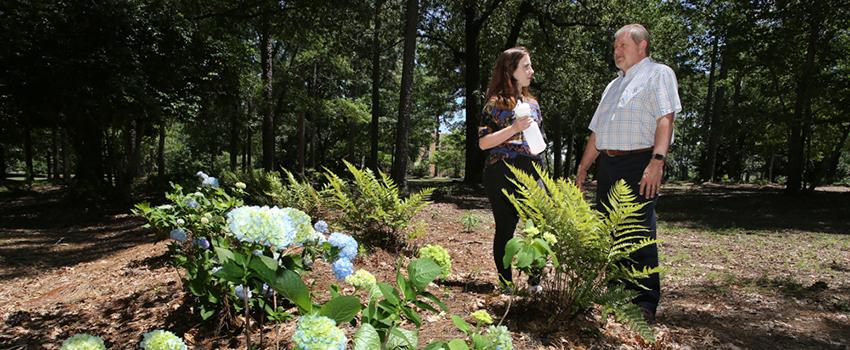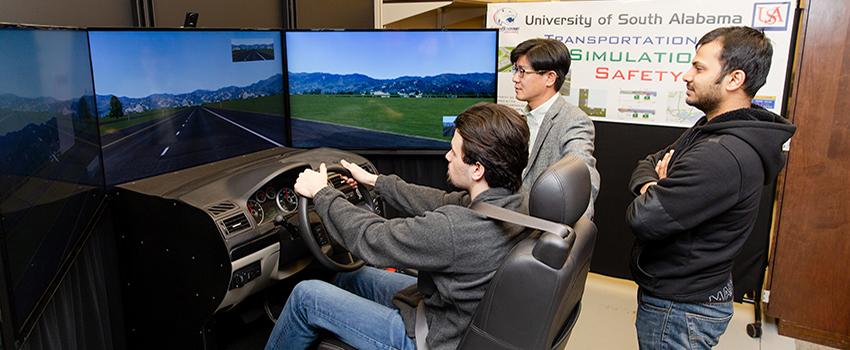Civil, Coastal, and Environmental Engineering
Civil Engineering Mission
The mission of the Department of Civil, Coastal, and Environmental Engineering is to provide students with quality, accessible undergraduate and graduate engineering education that prepares graduates for professional careers or graduate education in civil engineering or a related field; to promote the creation and dissemination of knowledge, through relevant research and department activities on civil, coastal, and environmental engineering problems; and to serve the State of Alabama and the Gulf Coast region through professional practice and community outreach activities.
 |
Affordable Schools lists our BSCE degree as one of the 50 Best Affordable Civil Engineering Degree Programs |
 |
US News & World Report ranks Civil Engineering #4 in Best Engineering Jobs and Environmental Engineering as #3 |
What is Civil Engineering and what do Civil Engineers do?
Civil engineering is a very broad profession that encompasses a wide range of activities, some obvious and some not so obvious. The profession is organized into several different subdisciplines: Structural Engineering, Transportation Engineering, Environmental Engineering, Construction Engineering, Coastal Engineering, Geotechnical Engineering, and Water Resources Engineering. Video: American Society of Civil engineers (ASCE) "What do Civil Engineers do?"
Civil engineers design, build, operate, and maintain the structures and infrastructure that allows our modern society to function. These facilities are critically important to our everyday life and include buildings, roads, bridges, safe drinking water systems, storm water and wastewater collection and treatment systems, railroads, seaports, airports, environmental protection systems, dams, flood control works, and many others. Civil engineering is the largest of all engineering fields and is projected to have the largest job growth (over 46,000 new hires) in next 10 years.
Civil engineers are problem solvers, meeting the challenges of pollution control, traffic congestion, drinking water needs, energy demands, urban redevelopment, coastal protection and resiliency, and community planning. From the Freedom Tower in NYC rising 1776 feet in the air to the massive Golden Gate bridge in San Francisco, civil engineers are building our future.
The USA Civil, Coastal, and Environmental Engineering Department (CCEE) offers the Bachelor of Science degree in Civil Engineering.
The USA Civil, Coastal, and Environmental Engineering Department (CCEE) offers a number of specialist Graduate Certificates and the Master of Science in Civil Engineering degree, and faculty in the Department can also advise students studying for a Doctoral degree.






